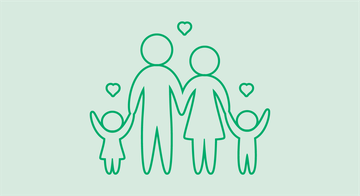Session 2: Introduction to Nurturing Care and Positive Parenting

Nurturing care and responsive care-giving helps children to develop their full potential.
Parents play a critical role in facilitating early experiences through the provision of nurturing care, defined as care which ensures health, nutrition, responsive caregiving, safety and security, social and emotional well-being, and early learning. The love and affection of elders and the early learning through play with siblings are critical.
- Together, this nurturing care helps a child grow, learn and develop a positive personality. Parents should engage and interact with children and help children grow to their full potential.

Care for Child Development:
The Care for Child Development (CCD) intervention is designed to promote cognitive, motor, social and affective development for infants and young children through early stimulation and supports interactions between caregiver(s) and child that builds the caregiver’s capacity to be sensitive and responsive.
- CCD is about play and communication with the child (newborn, infant, children up to 2 years of age) in different contexts where the parent/caregiver(s) and child are together.
- It can be during a structured play session, routine activities at home, when changing the child, feeding, teaching task etc. It involves skin-to-skin contact, hugging, smiles, laughter, facial mimics, use of objects in play, communication, showing love and praise to motivate the child etc.
- The CCD intervention should be integrated into the existing programmes, including health, nutrition, education and child protection services.

Often times, the parents need help and guidance on how to provide nurturing care to their children. Different methods (e.g., using mass media) can be adopted for this guidance but reaching and helping them through community-based health workers is mostly recommended.
- In rural Pakistan, the Lady Health Worker (LHW) of the National Programme for Family Planning and Primary Health Care, popularly called Lady Health Worker Program (LHWP) has the mandate of providing this parenting education.
- Every month, the LHW and some other frontline workers, such as school health and nutrition workers, social mobilisers, social welfare workers, CSO workers etc. visit each household of his/her catchment area to provide health promotion, and refer to the health center for curative services.

By the end of the session participants will be able to:
- Describe what 'parenting' means and what is 'Positive Parenting'?
- Explain the role of parents in Positive Parenting.

Presentation, role plays, discussions.

Flip chart, markers, power point slides, handouts on positive parenting, handouts on the Key Family Care Practices, nurturing care framework etc




